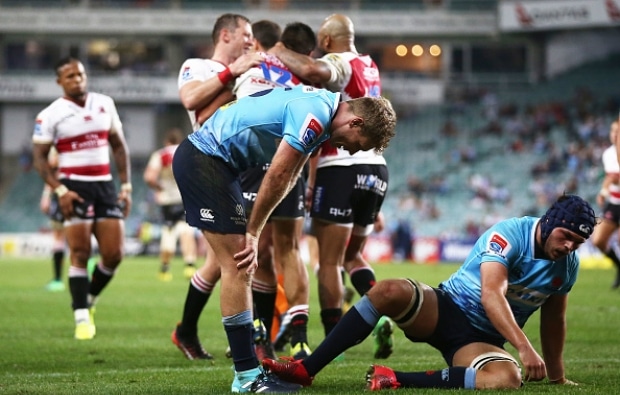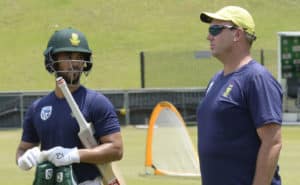The signs have been there for a number of years but the state of rugby union in Australia seems to be on an accelerated downhill path, writes GARY LEMKE.
Three weeks spent at the recent Commonwealth Games in Queensland, where the Reds Super Rugby team is based in Brisbane, provided a close-up experience of where union, the 15-man code, fits in on Australia’s sporting landscape.
It’s not news that of the three oval ball codes, union is a distant third to AFL (Australian rules) and rugby league. And while there is research and numbers to back up the view, the impression on the ground is that union is increasingly struggling.
In fact, sportswriters routinely use the expression that New Zealand’s Test cricketers ‘punch above their weight’, when they pull off a result against some of the ‘bigger’, more populous countries they play against, namely India, Australia, England and South Africa. However, perhaps the same should be said of Australia’s rugby union teams when they manage to get a result against their New Zealand and South African counterparts.
This most recent Super Rugby weekend saw all four Australian franchises lose: the Waratahs were beaten 29-0 by the Lions in Sydney, the Bulls beat the Rebels 28-10 in Pretoria, the Chiefs beat the Reds 36-12 in Brisbane and the Brumbies lost 25-20 to the Jaguares in Canberra. And, the Chiefs’ victory marked the 35th straight win by a New Zealand Super Rugby franchise over Australian opposition dating back to 2016.
In 2016, statistics released by Roy Morgan Research said that 93,000 Australians had given up playing union in the past 15 years, reducing their registered senior playing base to just 55,000. That placed union at No 26 on the list of most-played sports in Australia, with soccer at No 1, followed by golf, tennis, basketball and cricket. It’s almost that since 1999, when Australia won the Rugby World Cup for a second time, interest in that code in the country has been on the wane. Crowd attendances are also down in recent years.
The figures were angrily contested by the Australian Rugby Union, which claimed that total participation was up by 2.1% to 273,095 players. As always with statistics, things can be massaged to suit most arguments. Most reliable information is that numbers are down at club and adult level in union, while sevens participation is up, as are numbers among women and schools.
Yet, in those three weeks at the Commonwealth Games, the hands-on experience pointed to a sharpening decline in union interest. TV coverage is cornered by AFL and league, and the print newspapers – certainly in Queensland – are dominated by AFL and league. In fact, the World Rugby Sevens Series featured more prominently than any Super Rugby, in the time I was there. That trend extends to sports shops merchandise too.
Which brings me to South Africa. Union is massive in this country and a better barometer of the country’s strength is by measuring it against New Zealand’s franchises and the All Blacks. That Super Rugby win-loss record of 35-0 that the Kiwis have over their Australian counterparts speaks volumes of the gap between the countries. Sure, Australia’s national team will always be competitive, and they’re still ranked No 4 in the world, but wins over the All Blacks are now an exception to the rule. There is no longer impressive strength in depth.
Rugby union is virtually a religion in South Africa, with massive financial resources, player base and media awareness. But, in Australia, it’s almost at the point where four Super Rugby teams are perhaps one too many for a country thin on playing resources if they’re going to be competitive in that competition.
Rassie Erasmus surely could not have imagined a gentler start to his Springbok coaching career. First up is Wales on neutral territory, followed by three home Tests against an England side severely depleted by injuries and withdrawals. Then, when it comes to the Rugby Championship, the first two matches are against Argentina, followed by the Wallabies in Brisbane, the All Blacks in Wellington, the Wallabies in PE and the All Blacks at Loftus.
Given the circumstances and the quality of the opposition, surely it’s reasonable to expect the Boks to open up under Erasmus by winning at least eight of their first 10 Tests, and quite possibly nine. As always, the big test will be to see if the gap between South African and New Zealand is closing.
Photo: Matt King/Getty Images




